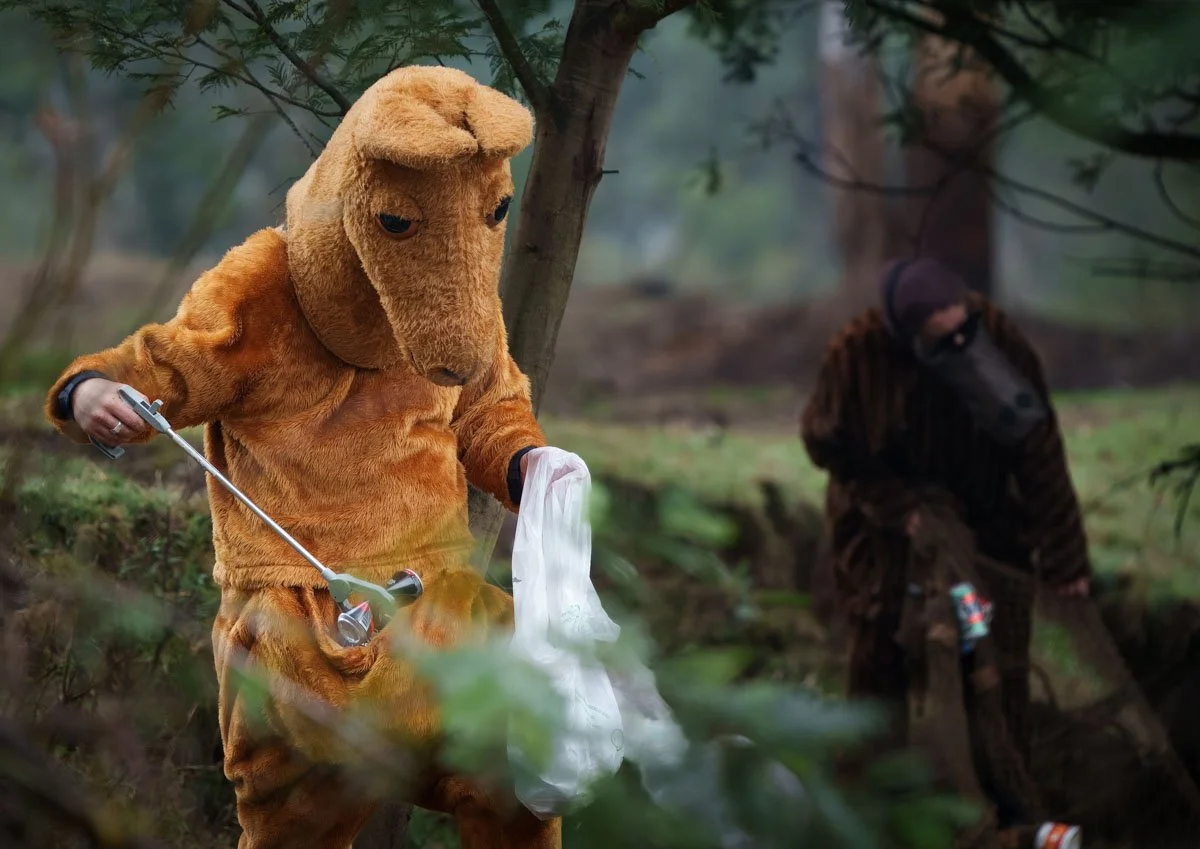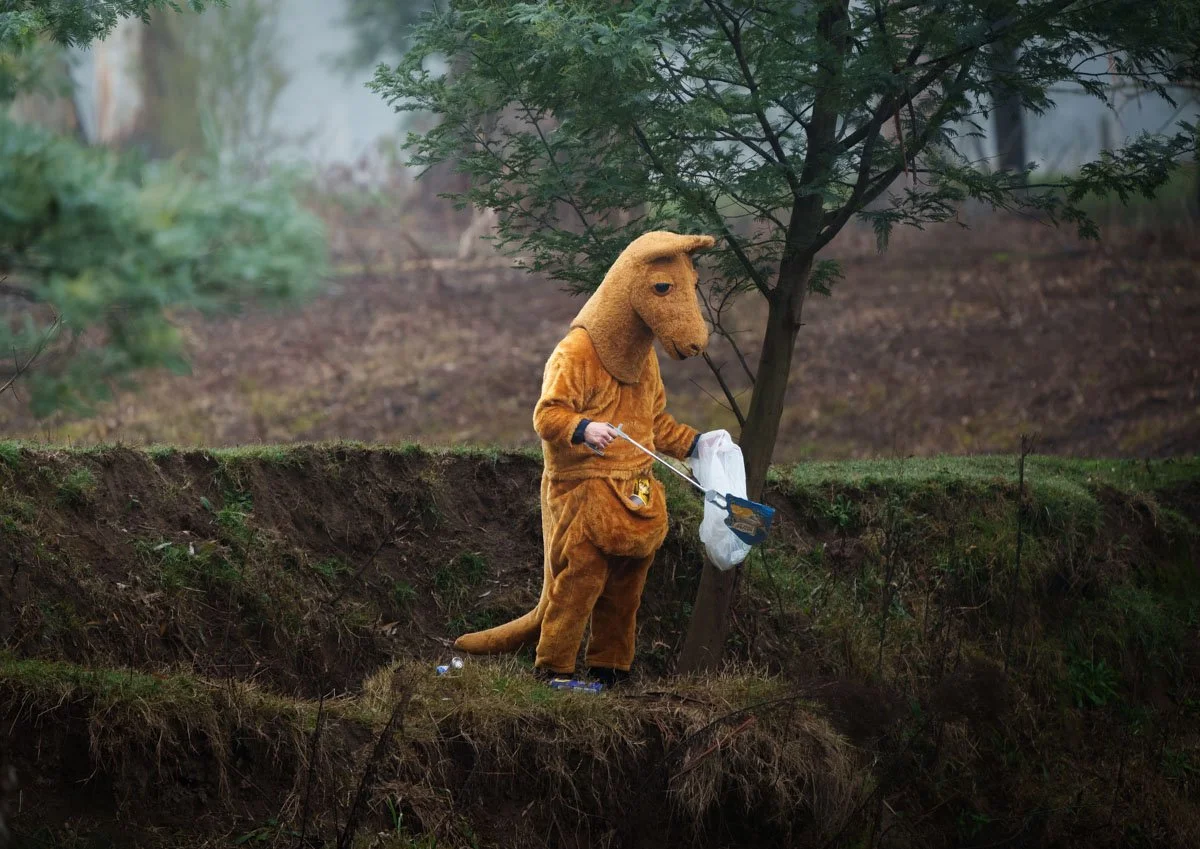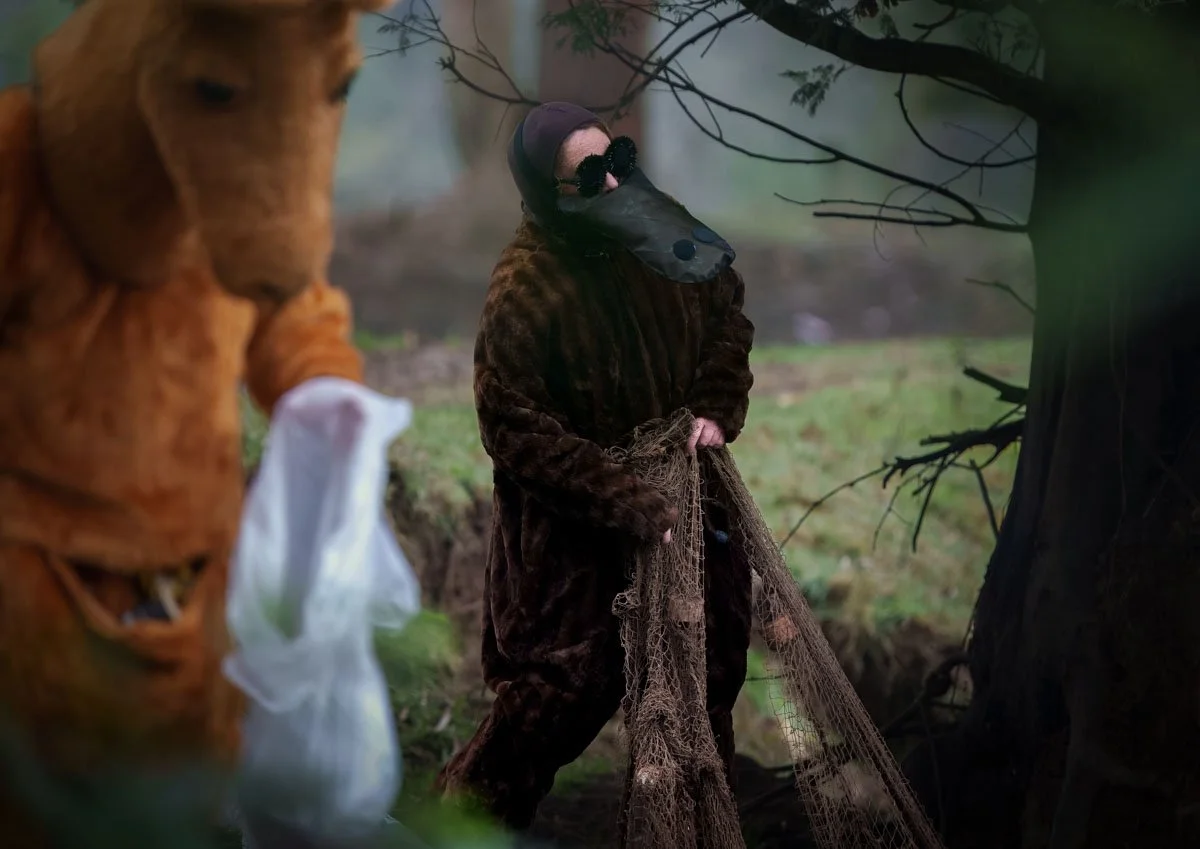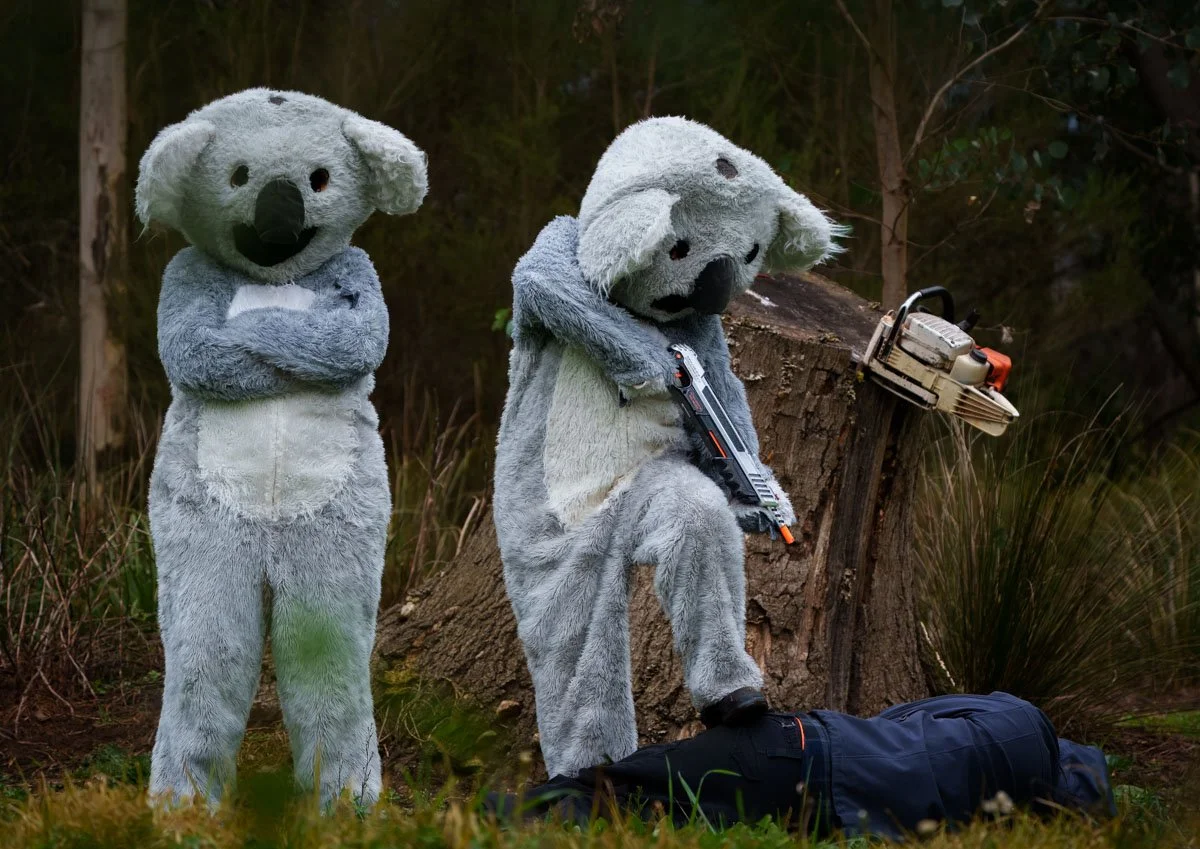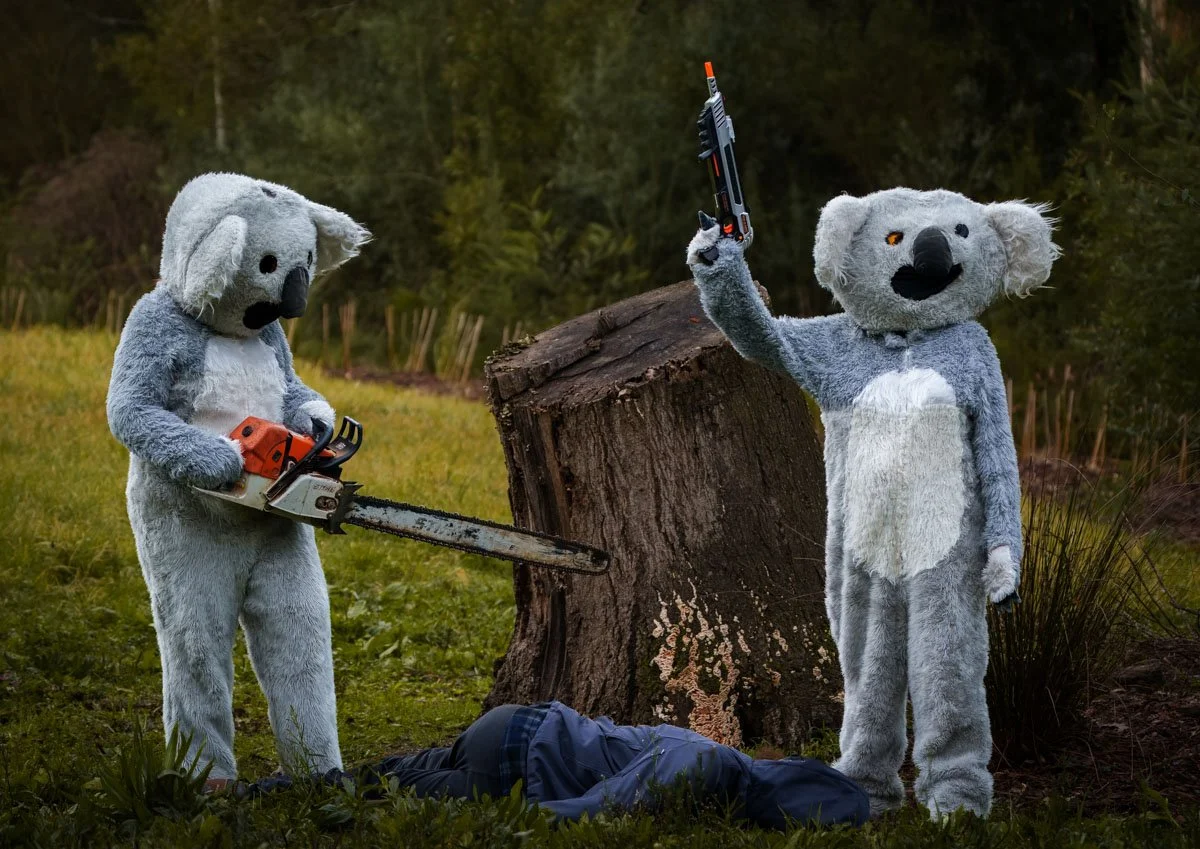'We'll Do It Then...'
'We'll Do It Then...'
Brad Vaughan and Rose Chong Costumiers have collaborated on this project to bring some of our most pressing ecological concerns to the forefront of peoples consciousness.
Using the state wide renowned genius that is Rose Chong and her incomparable costumes, Brad Vaughan has been able to capture some of our most treasured native Australian wildlife taking the matter of their survival into their own hands due to humans lack of action. This collaboration endeavours to bring awareness to the general public of how urgently we must act to protect and conserve our native flora and fauna, so as we might in turn do the same for ourselves. To “save the environment” is not a separate concept than to look after humanity - they are one in the same - and the sooner we welcome this into our hearts and daily practises, the longer our families and their families will be able to revel in our environment and our connected extraordinaioty.
We must now invest more than ever into fighting for our ever important native wildlife.
The time is now.
‘Revive The Rivers’
As of 2025, microplastics have been found in 100% of tested Australian fresh water samples.
Up to 130,000 tones of plastic leaches into Australia’s environment each year and over 5,000 platypus are estimated to die annually due to litter entanglement and habit pollution in Australian water ways. This photo highlights the pollution that enters our waterways everyday due to humans lack of respect for our natural world and our global governments inability to appropriately manage waste.
By 2050 there could be more plastic than fish (by weight) in the oceans if current pollution trends continue…
Some of the highest volume of waste products found in Australia’s waterways are derived from
McDonalds, 7 Eleven, Coke, Pepsi Co, Coles, and Woolworths.
Each year Australians use over 10 million plastic straws daily, many of which end up in water ways where they harm our vulnerable wildlife. Your choices have the potential to make devastating, or life saving impact.
Say “no” to unnecessary plastic. Say “yes” to necessary ecosystems.
‘Ensure The Eucalypts’
Koalas have lost 50-80% of their native habitat since European colonisation. To this day, despite koalas being now listed as endangered in these states, logging and development are still allowed in many key koala habitats, including native forests in New South Wales and Queensland. Between the years 2000 and 2020, New South Wales alone logged over 800,000 hectares of native forest, much of which containing known koala habitat.
Up to 40% of koala deaths during land clearing operations, come directly from trees being felled while koalas are still in them. Koalas require very specific species of eucalypt trees for food and shelter - when these trees are logged, koalas have nowhere else to go.
Without stronger protections for native forests and if we continue as we are, koala populations could become extinct by 2050.
To stop this devastation;
Use your voice - protest against logging of native forests.
Spend your money consciously - buy FSC certified or recycled paper, toilet paper, and timber.
Support local landcare or bush regeneration groups - volunteer or give to organisations working to protect koala habitat.
Drive carefully - slow down and stay alert, especially at dawn and dusk when koalas are moving between trees.
Care for our gorgeous koalas and their homes, like you would expect someone to care for yours.
‘Nurture The Natives’
Since European settlement, Australia has lost nearly half its native vegetation cover. About 350,000 hectares of native vegetation is cleared each year in Australia, putting life threatening pressure on the survival of native pollinators due to habitat destruction.
With the decline of pollinators, the agricultural industry has turned to artificial pollination, requiring pesticides, therefore damaging food crop quality and, as a result of using pesticides, furthering the decline of pollinators. The use of pesticides in Australia reduces bee populations by up to 70%.
In addition, climate change is shifting flowering seasons, creating mismatches between when plants flower and when pollinators are active. This threatens the life cycles of native bees, moths and butterflies.
At least 1 in 3 bites of food we take every day, relies on pollinators such as bees and butterflies. The farming practises you choose to support and the plants you choose to grow in your garden have a direct impact on the food production industry we so critically rely on. Plant for yours and your family’s health, and save our pollinators.

